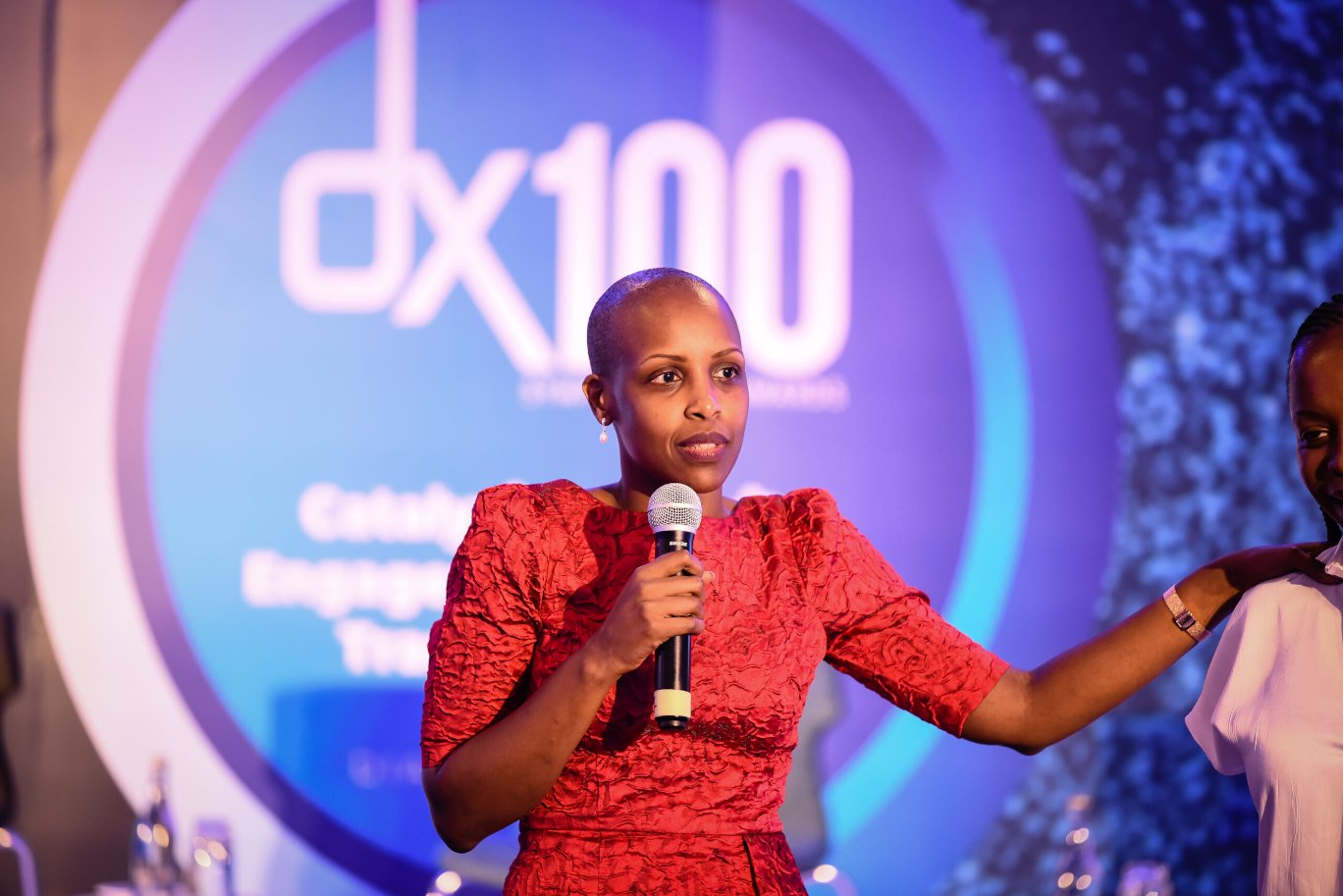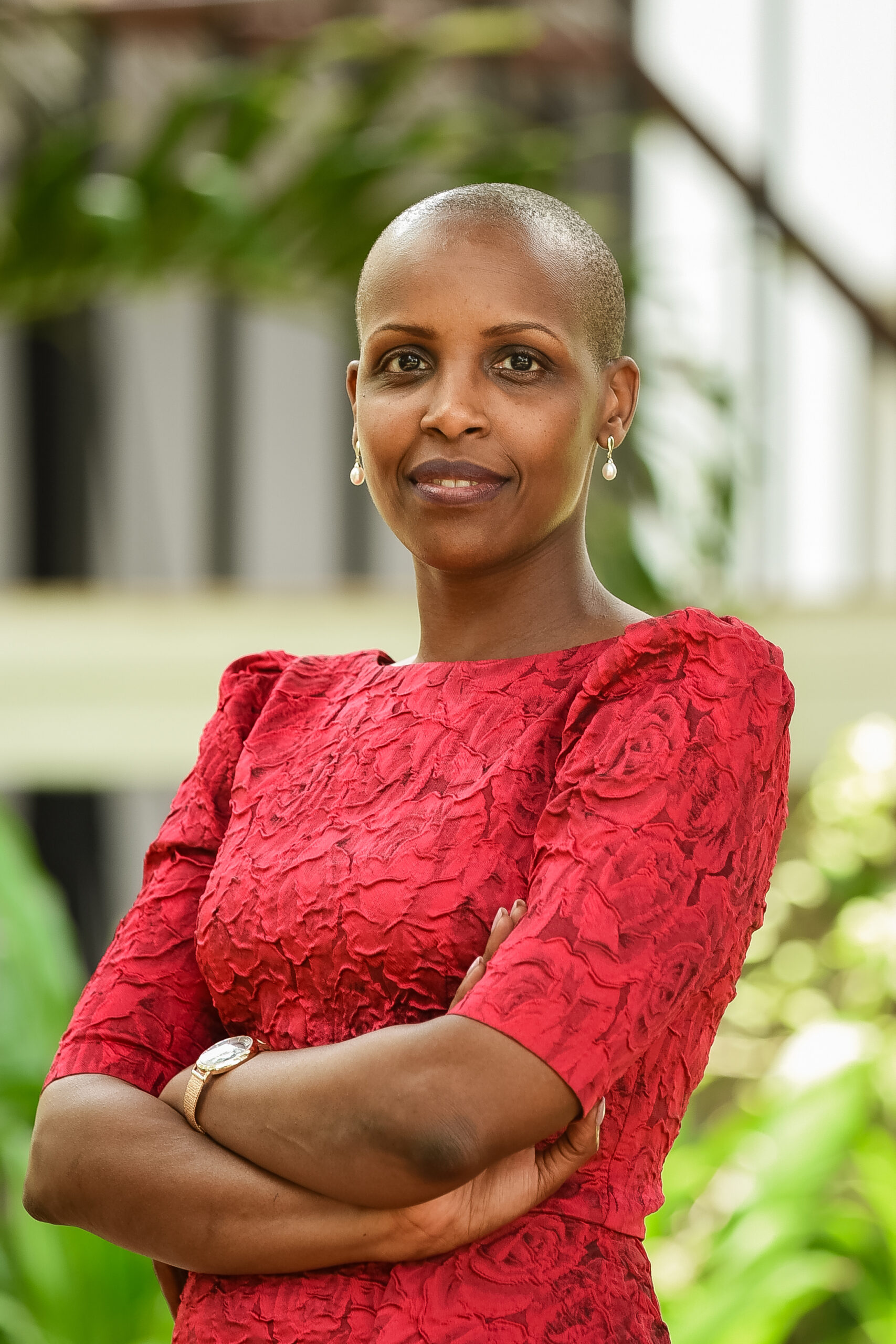advertisement
Phyllis Migwi Shares Microsoft’s Agenda For Africa

If you Google Phyllis Migwi, the Country Manager, Microsoft Kenya, you will find article after article about her appointment. They all say the same thing counting down her workstations, giving her professional background in a manner LinkedIn would be proud to template. When Migwi lands at the Digital Transformation (dx100) Symposium & Awards in Diani, the event puts her to work in a DE&I panel and a presentation the next day right before she flies out again. She has hit the ground running since her appointment in August 2022 and has charged forth with the Microsoft doctrine. So, when an opportunity to interview her presents itself, it is rather obvious that I will take it.
How connected is Microsoft Africa to the Mothership?
Very connected. We are a subsidiary. Microsoft in Kenya sits under the Microsoft Africa Regional Cluster which is under the Middle East and Africa (MEA cluster, and the Middle East and Africa cluster sits under Europe, Middle East and Africa cluster (EMEA) which is under HQ. We all have diverse business strategies that we are executing tailored to suit the different regions, all feeding into the overall Microsoft global strategy. This means that while we have the Africa strategy and initiatives, overall, we are part of the vision Microsoft is driving across the world which needs to be translated to the specific requirements of the region.
advertisement
What is the distinction between the Microsoft Africa Development Centre and Microsoft Kenya?
Microsoft ADC is hosted by Microsoft Kenya. In terms of organisation, it is the engineering arm – so, product development. I am responsible overall for what Microsoft is doing in Kenya. What we have done with Catherine (Muraga, Managing Director, Microsoft ADC), is to follow through on the vision of what is happening in Africa where talent was moving from Kenya to other locations. It is the same multinational tech companies accused of exporting talent that is now employing our young people locally. Microsoft has now changed the motion because as our CEO, Satya (Nadella, CEO, Microsoft) said, digital transformation is going to happen in Africa. (He is cited as saying “The reinvention of Microsoft will be in Africa.”) Instead of moving talent out, we are looking at how we can bring work, and keep the talent in these places as we continue to develop.
With regards to the commercial arm which I am running, we are looking at a lot more engagement with enterprise, government, and the initiatives they are focused on. When it comes to the youth, we have an arm linked to philanthropy that we continue to drive with our partners. The second arm is the Africa Transformation Office. Within it, we are having conversations around SMEs and start-ups.
advertisement
We are also looking specifically at skills from universities done in partnership with ADC. You must have seen them doing a lot of university tours. That is, for us, an initiative to drive engagement from that level. We changed the conversation to engaging them early rather than thinking how they leave university without the right skills required for current and future markets.
Third, is our engagement with the government, solving infrastructure problems identified by them. For so long we have celebrated cyber optic cabling, but there is still the last mile conversation to have. Does the SME seated in Mandera have the same access as the one in Nairobi?
When we squeeze all of this outside the Microsoft tube, what comes out the other end in terms of achievement for Microsoft in Africa?
advertisement
We are looking at driving our mission to empower every individual and every organisation to achieve more. That means youth and SMEs making sure they have access to the tools they need. We have looked at the population. We know youth is a significant percentage. We are looking to partner with Africa across the board on the transformation that is required to leapfrog. For a very long time, it has been all about how Africa is the next frontier. The reality is, this is the space that can be leading because we don’t have legacy. What will work is going to SMEs who we now know are the bulk of employers and the youth and making sure they are empowered too.
About going to universities. Is it not late by then? The choice has already been made about careers. Research has also indicated starting earlier, preferably around middle school, is a far better option when it comes to STEM interest. Couldn’t you start earlier?
We have a programme we are running. It is designed to start at what would be called K12. We have a learning team at ADC beginning to teach young learners by asking about the kind of skills they need. Coding is the most obvious one. They come to ADC and play around with something as simple as taking a picture and putting it through a digital machine and get excited about a little avatar they can put up at home. I see how the university can be considered a little late, but a university lays a certain foundation. We joke about how when you graduate from university you are given the power to read. It lays a foundation we can build on. All we are saying is once you start with that foundation, we can add skills needed in the market. Data science is not a conversation I can start with you if you don’t understand what data analytics is.
Walk us through and into the process of developing Microsoft talent.
One of the things we do internally, and I am currently in the process of doing it myself, is this. Every single person at Microsoft has a career development plan. By the time you are recruited, you have already passed one level. Your skill/talent. But we are making sure there is constant upskilling and development in your career. Like every other tech company, we have mandatory training we must do once a year. And as a leader, you must make sure you have a succession plan.
We have metrics and KPIs that I must report on the regular. These track people doing their courses relative to their initiatives. Are they growing? Are they becoming more visible? In the corporate environment, it is usually the person who is confident enough to raise their hand that gets attention and who will move up. Being able to position your team, give them opportunities, make sure they are doing certain trainings, maybe even do stretch assignments – these are a big deal for us. They take you outside of your role.
Now let’s have the cloud conversation.
If you look at the connected enterprise conversation that we just had, we are tying this new direction we are getting into and being cloud smart. With companies adopting newer technologies, we are now talking about moving from everything seated in one location. This is happening because the organisational infrastructure is not purely physical, with some leveraging of the cloud. Beyond that, the applications and solutions that are running are either hosted here or is this a case of Software-as-a-Service (SaaS) seated on a cloud somewhere? That shifts my security from “Can I ring-fence this?” to “Can I ring-fence access?” Unified Identity Access Management (IAM) is very key for us. Across tech, we are all now talking about the zero-trust framework. It doesn’t matter whether I am an employee of a company. For instance, I only have access to what I should do because of my role. If I don’t need to be accessing it, that multi-factor authentication will be able to say so once it’s set up. Someone will review it based on my credentials. Or, you could have files that are accessible for a window. Security has not just become about ringfencing, but also about team management and we have solutions around that. Identity is what allows me to define what I have access to. Once I have a clear why, your ID within the organisation and the boundaries within your role, then I can proceed.

A lot of people would love to work at a place like Microsoft. What does it take to get into that space?
That is a very difficult question – I think it’s opportunity. Unfortunately, there’s only a limited number of those. Let me give you an example. I needed to hire. I got very highly skilled 195 CVs. All should have qualified for an interview. We had to go through three more rounds to filter to the absolute best so that I can at least interview them. Everything I had told the recruiter I wanted, the 195 had. We had to go specific. And we still came to 30. It’s opportunity. We are literally seated with a significant amount of talent that we cannot absorb. We need to build the SMEs and create an ecosystem that absorbs all the talent we are creating.
Keeping in mind the demographic of talent ranging from 18 – 34, how has social media helped push, manage, and shape the Microsoft agenda?
Absolutely. Especially after we switched the mission to ’empowering every individual and every company to do more.’ Social media became even more important. Then, we were moving from talking about products, to what our products and services do for you. Social media was important for driving the narrative to outcomes. We just came out of COP27. Microsoft didn’t talk about products or services at all. But we were very visible in the sustainability conversation and how that tied to empowering the individual and companies.
That then brings people to the table to say, “If these are the outcomes I am being measured from, I’ll take the corporate package.” Now, all companies must show they are ESG-compliant. We do have solutions and sustainability management solutions – those exist. But what we did is show them the metrics. Driving the conversation that way means I can engage with more people. If you keep focusing on driving products and services, all we talk about is the technical stuff. I want to have conversations with the CDO, CHRO, and CMOs – I can’t do that when I’m talking about security or the cloud. Not when they want to hear, this is what it will do for your customer.
I’ve heard a few people say when brands come into Africa, they create problems for the solutions they have crafted instead of finding out what the real solutions to our problems are. Are Microsoft’s solutions addressing the problems that Africa faces?
I will say yes, Microsoft is investing in researching what Africa needs and developing solutions for those needs. I am very excited to be in this position, especially with the deliberate setting up of the Africa Transformation Office (ATO). Microsoft does want to re-invent itself. They have tagged Africa and said that is where we want to do it. Then we went ahead and invested. Driving that is the recognition that Africa has unique opportunities that then enable us to create afresh. Instead of copying solutions from somewhere else, I am going to build them from here and take them to the world.